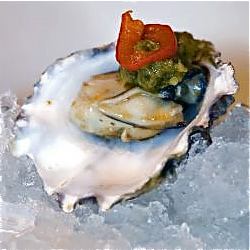 Southern cooking—and great food in general—is best when it tells a story.
Southern cooking—and great food in general—is best when it tells a story.
No one knows this better than Amy Evans, whose job as a culinary oral historian at the Southern Food Alliance (SFA) is to help travelers better understand the history and influences of Southern cuisine.
Housed within the Center for the Study of Southern Culture at the University of Mississippi, SFA’s mission is to document and celebrate the food and culinary culture of the American South through workshops, events and, of course, travel.
Evans travels the region and gathers the stories behind each delicious morsel she encounters. Because she focuses on oral traditions, she only records the story on audio accompanied with still images. “When people aren’t on camera, I can get the real story. The people I interview are more natural and they feel free to tell me everything about the culture they hold dear,” said Evans.
Evans has collected the stories of Memphis barbecue, Louisville bars, and Cajun Country pork, to name a few.
 While she doesn’t have a favorite, she does hold some projects in especially high esteem: “One project that does stick out is ‘Florida’s Forgotten Coast,’ the story of the oyster fishers of the Floridian Apalachicola Bay. It was just really interesting to get to know a very tight-knit community,” she said. “The price of real estate is going up, the needs of the generations are changing, and the unique culture of oyster harvesting is fading. It’s a sad thing because it is a beautiful way of making a life and working in the water.”
While she doesn’t have a favorite, she does hold some projects in especially high esteem: “One project that does stick out is ‘Florida’s Forgotten Coast,’ the story of the oyster fishers of the Floridian Apalachicola Bay. It was just really interesting to get to know a very tight-knit community,” she said. “The price of real estate is going up, the needs of the generations are changing, and the unique culture of oyster harvesting is fading. It’s a sad thing because it is a beautiful way of making a life and working in the water.”
In order to get these stories, Evans has to earn the trust of the interview subjects. “I just try to get in the door by talking to people and always being available.”
And once the stories start flowing, it’s often difficult to stop them. “That’s one of the hardest parts of my job,” lamented Evans. “I want so badly to stay longer, but I almost always just get to swing in and swing out.”
That said, she does stay in contact with her subjects, often receiving a call or a card updating her on their culinary community. “When you collect someone’s history they trust you to gather and, really, be a part of their stories, so you create a strong friendship very quickly.”
 Because of the SFA’s mission to merge gastronomy and travel, it is on the cutting edge of culinary tourism. “We’re all culinary tourists when we travel because we all eat,” said Evans.
Because of the SFA’s mission to merge gastronomy and travel, it is on the cutting edge of culinary tourism. “We’re all culinary tourists when we travel because we all eat,” said Evans.
She works to educate the members of the SFA and the general public on how to seek out food that is local and handmade. “We work to educate people who are traveling on how to find local restaurants; we try to inspire people to travel off the highway.” Traveling off the beaten path, explains Evans, is how you can strike up conversations that will tell your far more about the local experience than you could discover on your own.
Best of all, you don’t have to travel far to be a culinary traveler. “You can be a culinary tourist in your own backyard just by driving and trying out the mom-and-pop joint.”
SFA sponsors several events a year, including: a fall symposium (this year’s topic is the connection between food and music); a three-day summer field trip which includes hands-on activities such as tonging for oysters; and various day camps at the Alliance headquarters which includes workshops and, of course, an incredible meal.
SFA’s Web site, www.southernfoodways.com, also features culinary trails to help travelers design their on DIY eating tour of the South, from barbecue to gumbo to Southern-style tamales.
By Courtney Crowder for PeterGreenberg.com.
Still hungry? Don’t miss our complete Culinary Travels section.
Interested in Southern culinary travels? Check out these articles:












